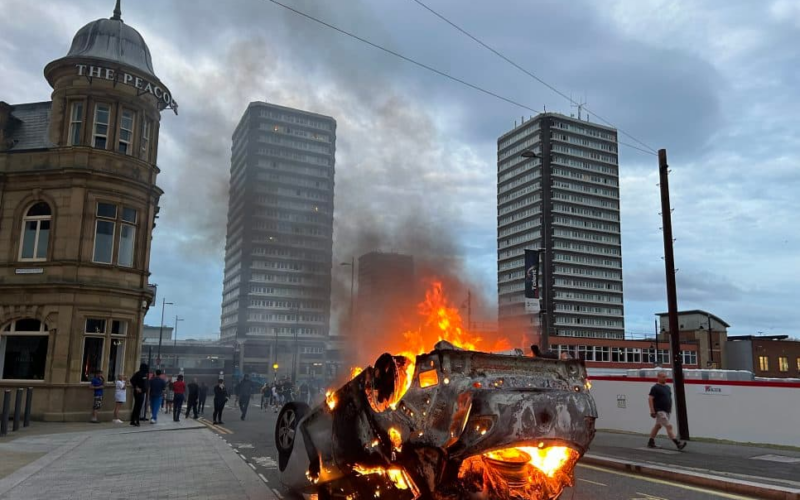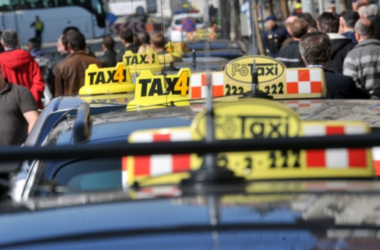Barely a month into Labour’s ascendancy, Keir Starmer’s administration faces its first major crisis—one that could have been anticipated but was entirely avoidable. Despite the looming budget concerns and promises of fiscal responsibility, the real crisis is far more immediate and visceral: a complete breakdown of law and order across the nation.
Far from the “haven of peace and stability” that some, like Andrew Marr, optimistically predicted, Britain is witnessing an alarming surge in violent unrest and public disorder. From the Harehills riot in Leeds to violent clashes in Southport and Hartlepool, and machete-wielding gangs terrorizing Southend, the situation is rapidly spiraling out of control. In Manchester and Whitechapel, protests have escalated into violence, further exacerbating fears of anarchy.
The root of this chaos is not just random criminality but a deep-seated frustration among the public, particularly in working-class communities, who feel abandoned and ignored by a Labour government more concerned with pandering to minority groups than addressing the genuine concerns of the majority. Starmer’s response to these crises has been hesitant and inconsistent, often appearing to favor certain groups over others, further fueling the perception of a two-tier approach to law enforcement.
For instance, after the violent altercation at Manchester Airport, Labour MP Paul Waugh was quick to meet with the family of the men involved, painting them as victims of police brutality. Similarly, after the Harehills riot, Labour-run Leeds city council was more focused on appeasing the Roma community than addressing the root causes of the violence.
This selective sympathy is not only alienating millions of voters in working-class constituencies but is also emboldening those who would exploit the government’s weakness. Starmer’s attempt to play both sides—cracking down on disorder while simultaneously appeasing minority groups—has backfired spectacularly, leaving him with a rapidly deteriorating public order situation.
The consequences of this approach are already becoming apparent. Far-right protests and violent anti-immigrant riots are flaring up across the country, driven by a growing sense of injustice and abandonment. In Sunderland, the situation turned particularly ugly, with rioters attacking police and setting fires, a direct response to the perceived failures of the government to protect its citizens.
Starmer’s government is at a crossroads. The Prime Minister has attempted to regain control by invoking memories of his tough stance during the 2011 summer riots, promising swift and severe justice for those who break the law. But this rhetoric rings hollow to many who see his administration as more interested in placating special interest groups than in maintaining law and order.
As the unrest spreads and public confidence in the government’s ability to maintain order erodes, the Labour Party risks losing the very voters who reluctantly supported them in the last election. The perception that Starmer is presiding over a lawless Britain, where double standards in policing are the norm, is driving a wedge between Labour and the working-class base it needs to retain power.
If Keir Starmer does not take decisive action to address the concerns of all citizens—not just those who fit a particular political narrative—he will find himself presiding over a nation more divided and unstable than ever. The time for half measures is over. The government must prioritize the safety and security of its people or risk losing their trust—and with it, any hope of a stable and prosperous Britain.








